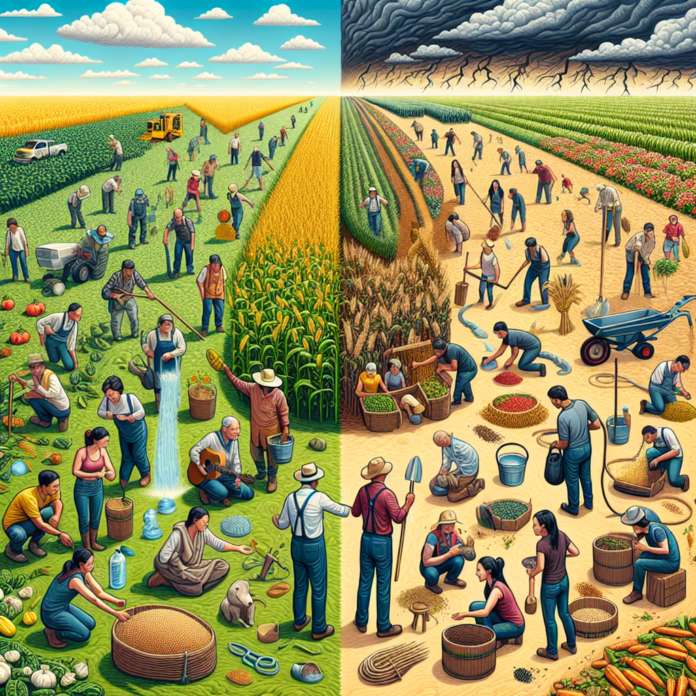Climate Assistance Essential for Farmers
Farmers Require Climate Supports
Connacht Tribune Group
Farmers are increasingly feeling the impact of climate change, prompting a growing call for comprehensive climate supports to help them adapt to the new environmental challenges. As unpredictable weather patterns, extreme temperatures, and irregular rainfall become more common, agricultural practices and yields are being significantly affected.
For farmers, the stakes are high. Crops are more susceptible to diseases, pests, and extreme weather events, while livestock face heightened risks from heat stress and changing pasture conditions. To mitigate these challenges, farmers need access to a variety of climate supports.
### Financial Assistance and Incentives
One of the most immediate needs is financial support. Governments and financial institutions can play a crucial role by providing grants, low-interest loans, and subsidies to help farmers invest in sustainable practices and climate-resilient technologies. These might include advanced irrigation systems, drought-resistant crop varieties, and renewable energy installations.
### Education and Training
Equally important is the need for education and training programs. Farmers must be equipped with the knowledge to implement climate-smart agricultural practices. Extension services and agricultural advisors can offer workshops and resources on topics such as soil health management, water conservation techniques, and integrated pest management.
### Research and Development
Investment in research and development (R&D) is also critical. Universities, research institutions, and the private sector should collaborate to innovate new farming techniques and technologies that can withstand the changing climate. This includes the development of climate-resilient crop varieties, precision agriculture tools, and advanced weather forecasting systems.
### Policy and Advocacy
Policy support is essential to create an enabling environment for farmers. Governments must enact policies that promote sustainable farming practices, enforce environmental regulations, and support rural development. Advocacy groups can also help raise awareness about the challenges farmers face and push for necessary policy changes.
### Community and Network Support
Building strong networks and communities can provide farmers with the support they need. Peer-to-peer learning, farmer cooperatives, and online forums can facilitate the exchange of knowledge and experiences, helping farmers to adapt more effectively.
### Technological Integration
The integration of technology into farming practices is another vital area. Precision agriculture, Internet of Things (IoT) devices, and data analytics can help farmers make more informed decisions. These technologies can optimize resource use, monitor crop health in real-time, and predict adverse weather conditions, thereby reducing risks.
### Environmental Conservation
Lastly, farmers must also focus on environmental conservation. Practices such as agroforestry, crop rotation, and organic farming can enhance biodiversity, improve soil health, and reduce greenhouse gas emissions. These practices not only help mitigate climate change but also make farms more resilient to its impacts.
In conclusion, to safeguard their livelihoods and ensure food security, farmers require a multifaceted approach to climate supports. By combining financial aid, education, R&D, policy backing, community support, technological integration, and environmental conservation, we can help farmers navigate the complexities of climate change effectively.


